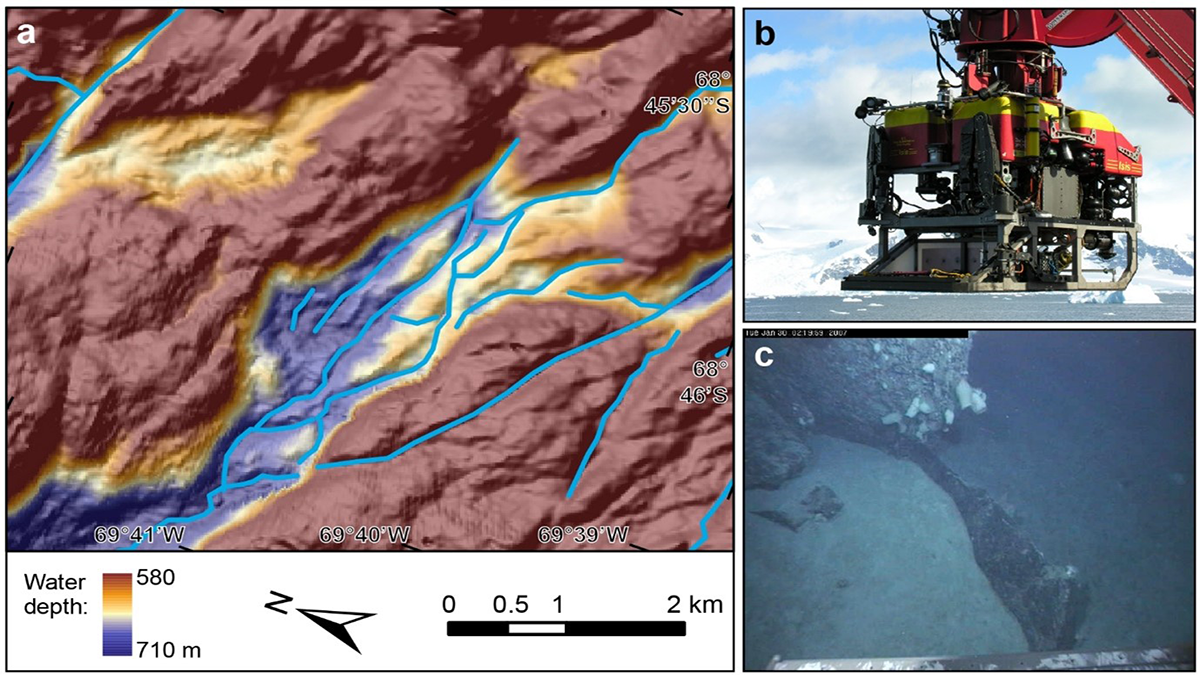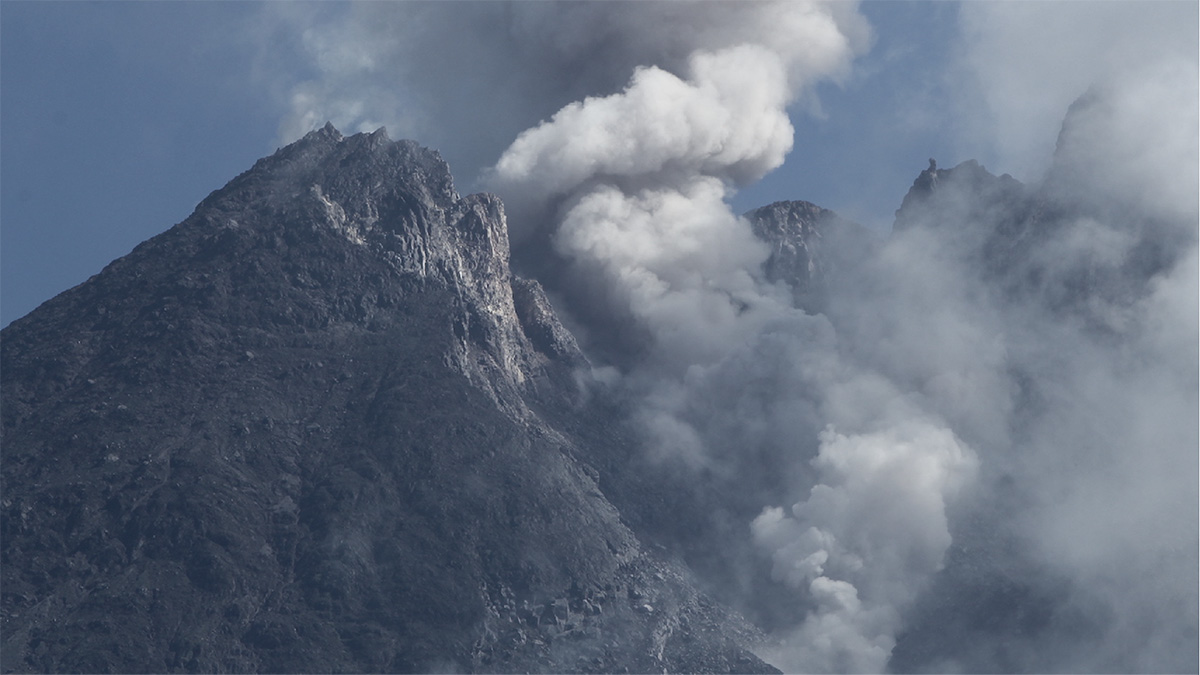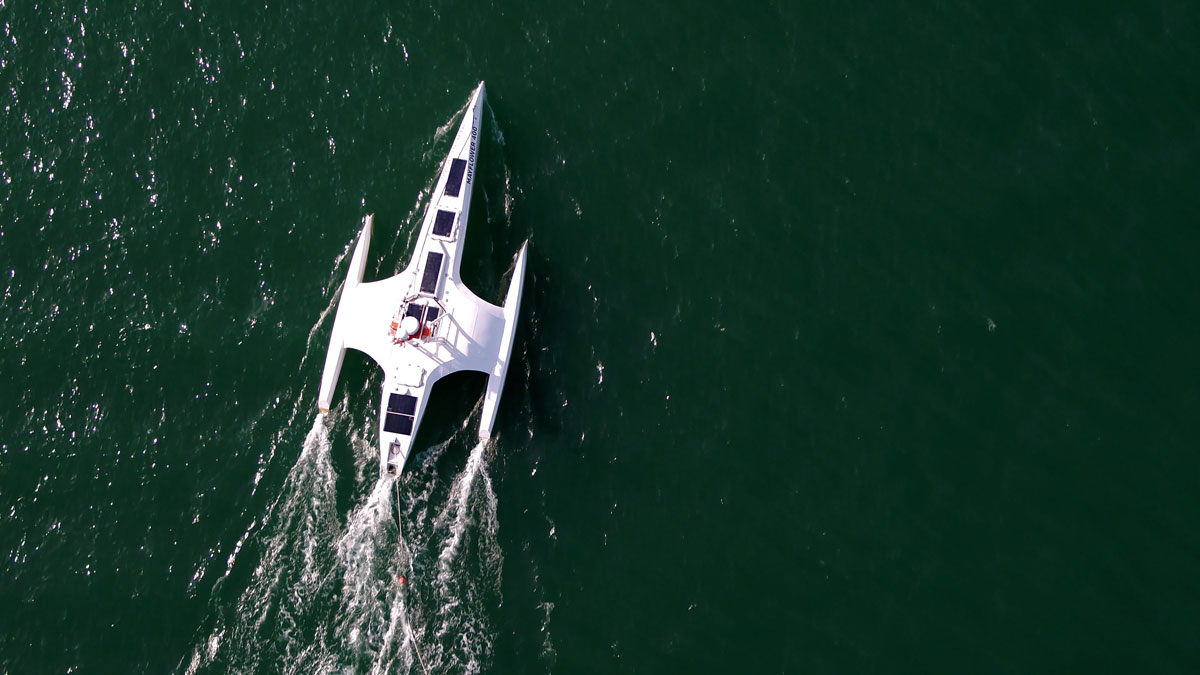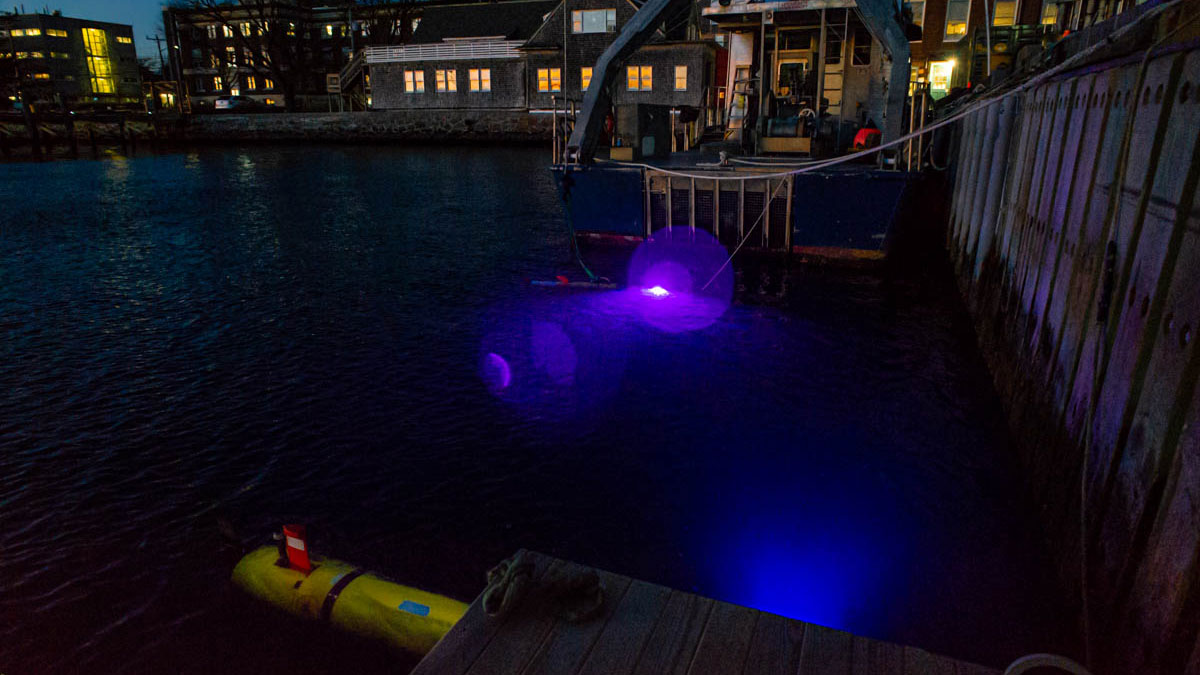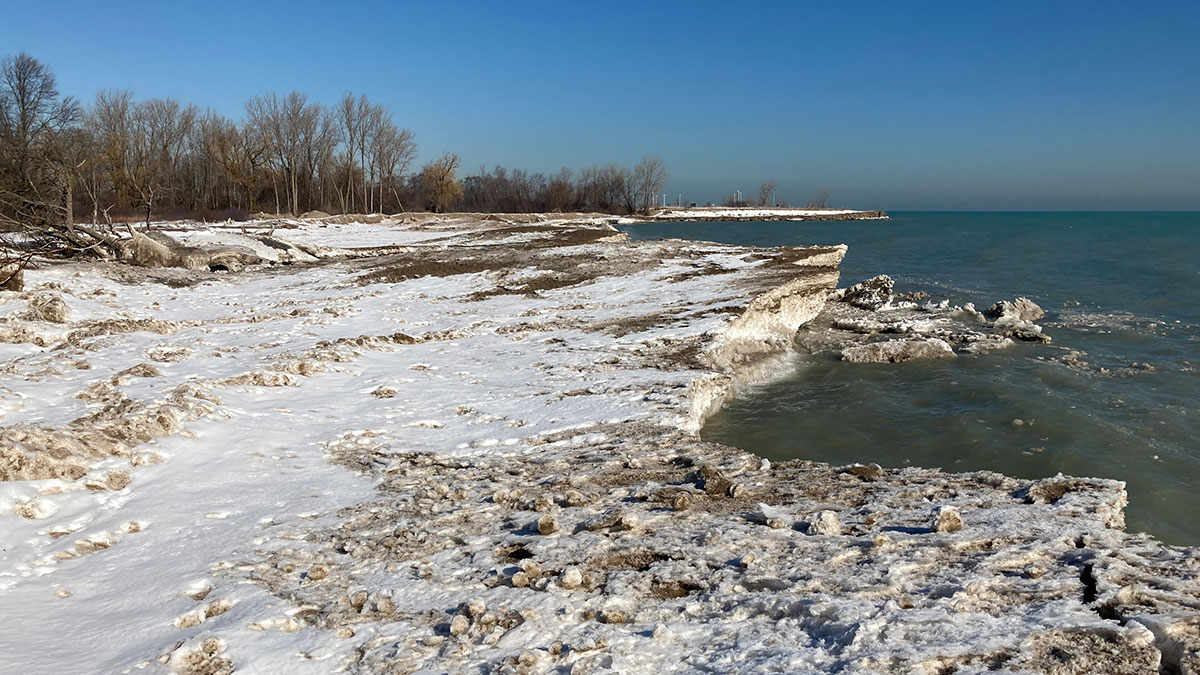El Proyecto Recover usa vehículos autónomos submarinos para identificar, acceder, y captar imágenes de sitios difíciles de alcanzar con restos de la Segunda Guerra Mundial, cerca de las Islas Marianas del Norte.
drones & ROVs
An Unprecedented View Inside a Hurricane
To improve future tropical cyclone forecasts, researchers sent a remotely operated saildrone into the extreme winds and towering waves around the eye of a category 4 hurricane.
New Observations Reveal Ancient Subglacial Water Paths
Analyses of new shipboard and ROV observations of bedrock channels carved by floods and outbursts from subglacial lakes under Antarctica shed light on complex subglacial processes.
Drones Discover Hidden Weaknesses of Collapsing Volcanoes
Understanding buried, hidden zones of structural weaknesses within Indonesia’s Merapi volcano can help to substantially advance our ability to predict catastrophic dome failures.
Robotic Vehicles Explore World War II Era Ocean Battlefields
Project Recover used autonomous underwater vehicles to identify, access, and image hard-to-reach World War II wreckage sites near the Northern Mariana Islands.
Exploration and Evaluation of Deep-Sea Mining Sites
Two studies chart new territory for the fledgling deep-sea mining industry through advances in the identification and analysis of seafloor hydrothermal mounds.
A New Mayflower, Named for the Past, Autonomously Navigates the Future
To commemorate the 400th anniversary of the Pilgrims’ crossing, a ship guided by an AI captain will embark on the same journey, doing science along the way.
A Bright, LED-Lit Future for Ocean Sciences
LEDs have taken over the global lighting market. Now it’s time for this versatile, low-cost, and energy-efficient technology to illuminate oceanic processes.
Drones and Crowdsourced Science Aid Great Lakes Data Collection
Important data collection can aid coastal monitoring and management.
New “Snakebot” Could Map Cambodian Minefields
By navigating under dense vegetation, an innovative robot could significantly reduce the monetary, environmental, and human cost of demining Cambodia.



